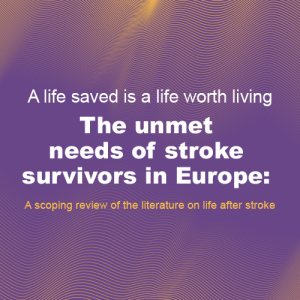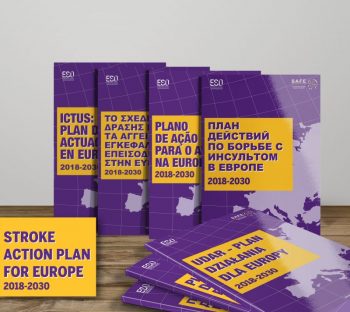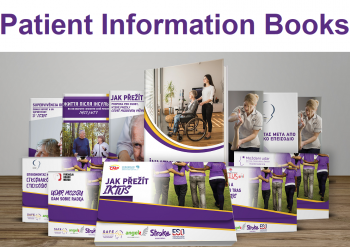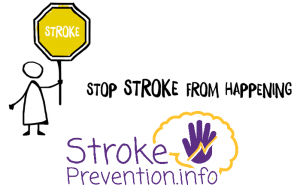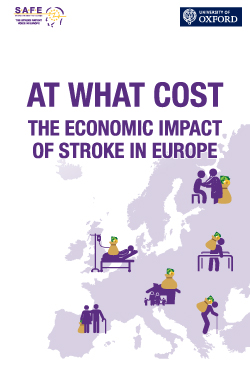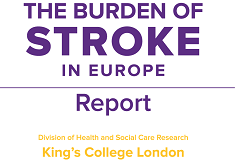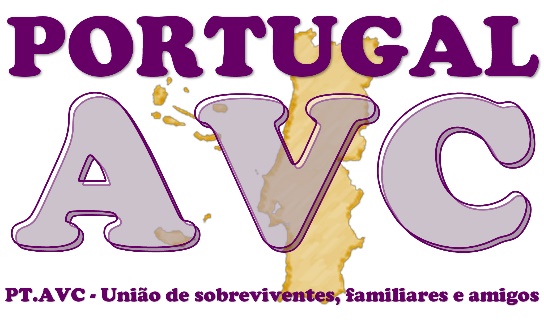
Jan 18, 2017
by Jennifer Thomsen | 17.1.2017 |published on eso-stroke.org
Interview with a Stroke Survivor who had stroke at 34
By Francesca Romana Pezzella (Italy) and Anita Arsovska (Macedonia)
Diana Wong Ramos is a 39 year old stroke survivor, whom we met during the SAFE (Stroke Alliance for Europe) Conference in Amsterdam, 6th -9th of December, 2016. Diana is a brave young woman who had recently founded the Stroke Support Organization in Portugal, her Country, (Portugal AVC) together with Antonio Concenicao. (more…)

Jan 17, 2017
Evidence overwhelmingly supports a link between cognitive decline (including dementia) and cerebrovascular diseases such as atherosclerosis, arteriolosclerosis, and cerebral amyloid angiopathy. Not only do individuals with cerebrovascular diseases have a much higher incidence of cortical microinfarcts (mini-strokes), but post-mortem histological and in vivo radiological studies also find that the burden of microinfarcts is significantly greater among people with vascular cognitive impairment and dementia (VCID) than in age-matched, non-demented individuals.
Until now, the mechanisms by which these miniscule lesions (~0.05 to 3 millimeters in diameter) contribute to cognitive deficits including dementia have been poorly understood. (more…)

Jan 15, 2017
Researchers use Donkey Kong video game to help guide new approaches in neuroscience
The complexity of neural networks makes them difficult to analyze, but human made computing systems should be simpler to understand. In a study published in PLOS Computational Biology, researchers applied widely used neuroscience approaches to analyze the classic games console Atari 2600 – which runs the video game “Donkey Kong” – and found that such approaches do not meaningfully describe how the console’s microprocessor really works. (more…)

Jan 11, 2017
People with certain forms of early-onset Parkinson’s disease may benefit from boosting the amount of niacin in their diet, according to new research from the University of Leicester.
Niacin, or Vitamin B3, is found in a variety of foods, including nuts and meat.
The team from the MRC Toxicology Unit at the University of Leicester studied fruit flies with a mutation that mimics the human disease. (more…)
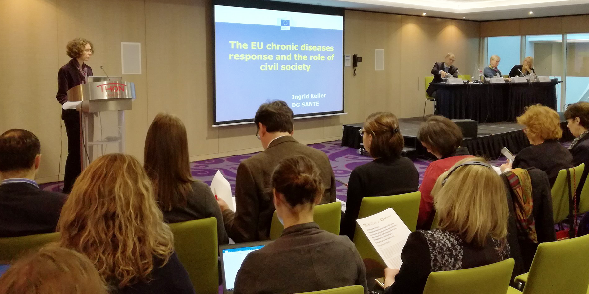
Jan 10, 2017
Published on ncdalliance.org
Brussels, Belgium – On the 12th and 13th of December 2016, the NCD Alliance and the European Chronic Disease Alliance (ECDA) co-organised a European meeting on the role of civil society in the regional response to NCDs. The meeting, co-sponsored by the World Health Organisation, convened NCD Civil Society Organisations (CSOs) in the region and brought together 67 participants from 22 countries across Europe. It aimed to share experiences, strengthen networks and increase capacity to drive advocacy, policy and accountability as well as to support implementation of the 2016-2025 WHO European Action Plan for the Prevention and Control of NCDs and other regional NCD priorities. (more…)

Jan 5, 2017
Published on www.csp.org.uk
Physiotherapists in North Devon have helped develop a free online guide to help carers, clinicians and therapists find suitable apps for neuro rehabilitation.
The mytherapy website was created by the stroke and brain injury team at Northern Devon Healthcare NHS Trust.

Image source: https://www.my-therappy.co.uk/
The team, including CSP members Emma Cork and Louise Holmes, has been using apps as part of their assessment and treatment for more than four years. The new website is a toolkit for stroke patients and clinicians of apps they have found to work well. (more…)








